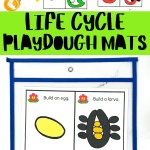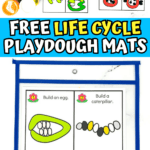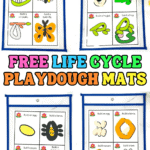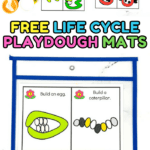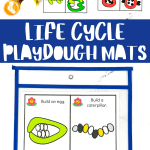Free Life Cycle Playdough Mats for Hands-On Learning
Life cycle playdough mats ended up being one of our favorite ways to explore science at home.
My son would get completely focused, rolling tiny eggs, squishing larva, and proudly showing off each stage he made.
These free printable playdough mats gave us a creative, hands-on way to dig into animal life cycle activities without feeling like schoolwork.
With themed mats for a frog, bee, butterfly, and ladybug, these printable sets make learning tactile, fun, and easy to repeat whenever curiosity strikes.
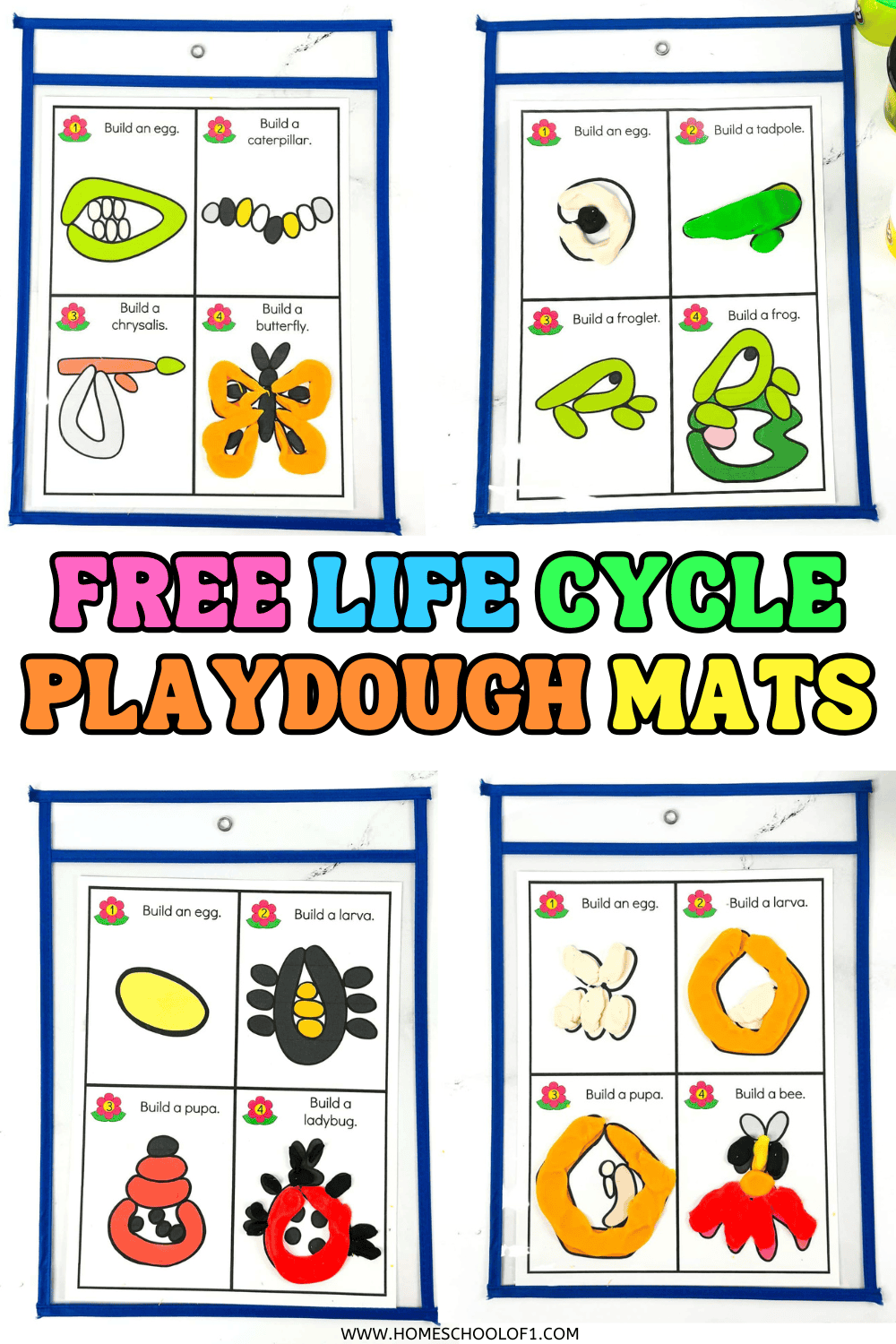
**This post may contain affiliate links. As an Amazon Associate and a participant in other affiliate programs, I earn a commission on qualifying purchases.**
Playdough life cycle mats
These animal life cycle playdough mats are a fun, low-prep way to bring science to life through sensory play.
Kids can mold each stage with their hands, helping them retain and understand the life cycle of different animals.
Supplies needed:
- Printable mats – scroll to the bottom to access them
- Play-doh in a variety of colors
- Dry erase pockets or a laminator
Life Cycle of a Bee
Start by rolling small white balls for the eggs, which the queen lays inside a honeycomb cell.
Next, form a curved larva using cream or yellow playdough, it looks a bit like a tiny worm.
Use orange or yellow to shape the pupa, where the transformation begins.
Finish by building the adult bee with black and yellow stripes. We like to press in wings with a coin and use a toothpick to add antennae.
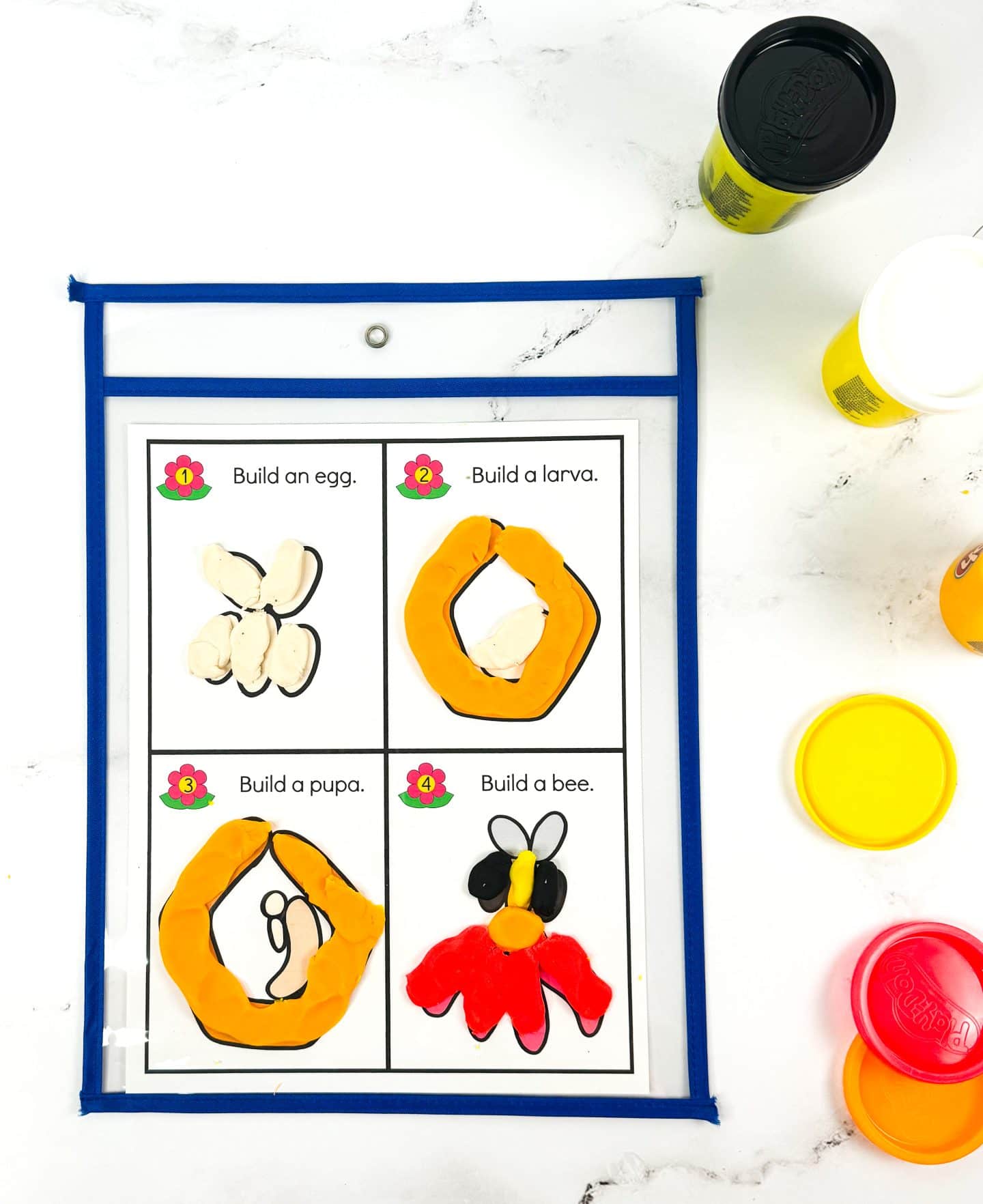
Pair this with our free bee life cycle coloring sheet for extra practice.
Life Cycle of a Butterfly
Butterflies begin as tiny white eggs, often laid on the underside of leaves.
Form a colorful caterpillar using playdough segments in any combo, my son likes stripes.
The chrysalis stage is next, shape green or brown into a teardrop and try gently twisting the top to mimic a stem.
Build the butterfly with large wings and patterns. A fork works great for adding symmetry to the wings.
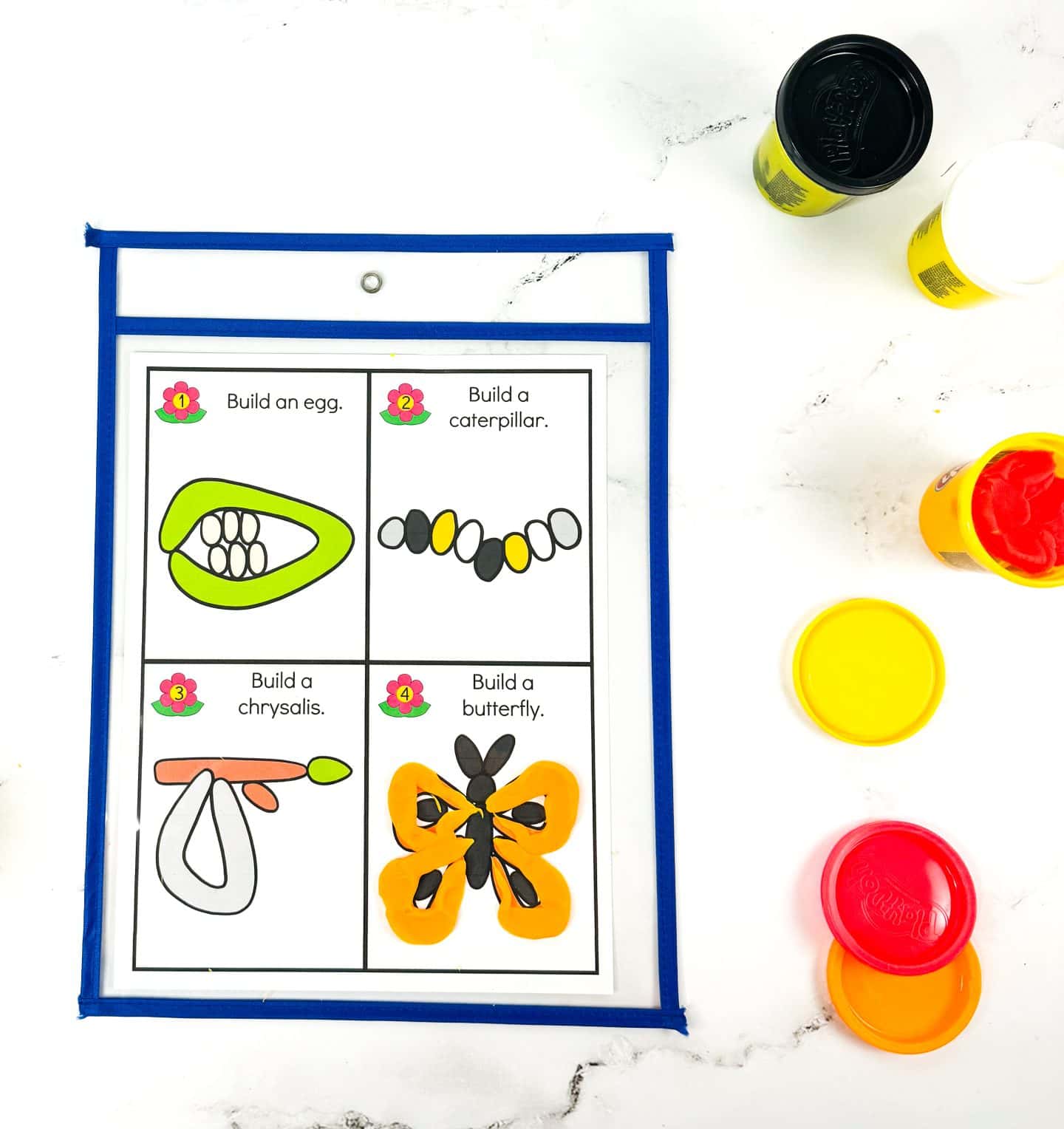
Try our butterfly scavenger hunt to keep the learning going!
Life Cycle of a Frog
Start with small black-and-white dots to form a cluster of frog eggs, just like you’d see floating on pond water.
Shape a simple tadpole from green playdough with a tail and tiny bumps for eyes.
Next is the froglet: keep the tail, but add small legs to show it’s growing.
The final frog should have long legs, a rounded body, and big eyes, we use a ballpoint pen cap to press in the eyes.
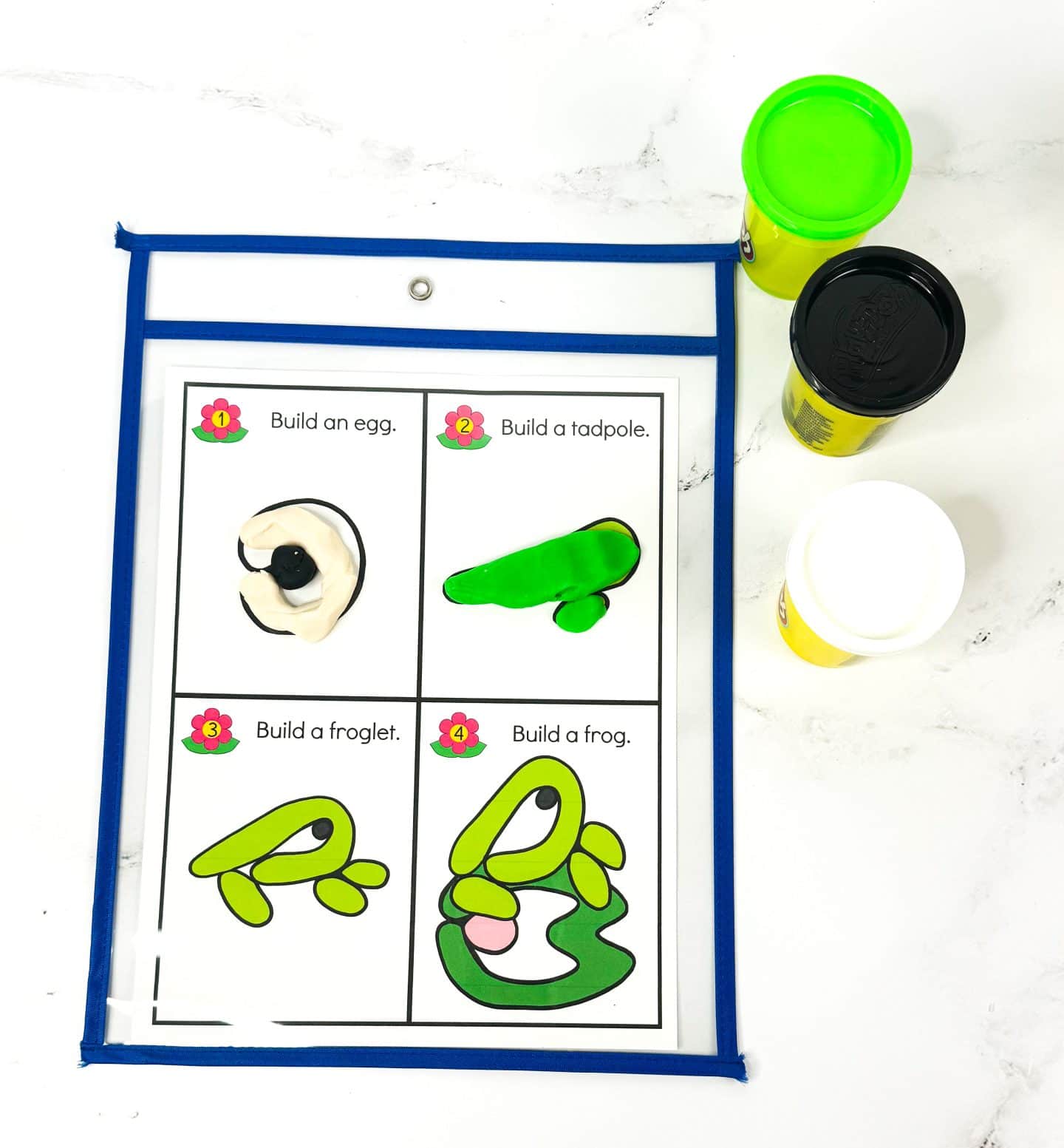
Don’t miss our printable frog life cycle coloring page for another hands-on option.
Life Cycle of a Ladybug
Begin with little white or yellow eggs, these are laid in clusters on leaves.
Shape a segmented black larva, a bit like a spiky worm.
Create the pupa using red playdough in a simple oval.
Then build your ladybug with red and black, press in spots using the end of a pencil and add tiny legs and antennae.
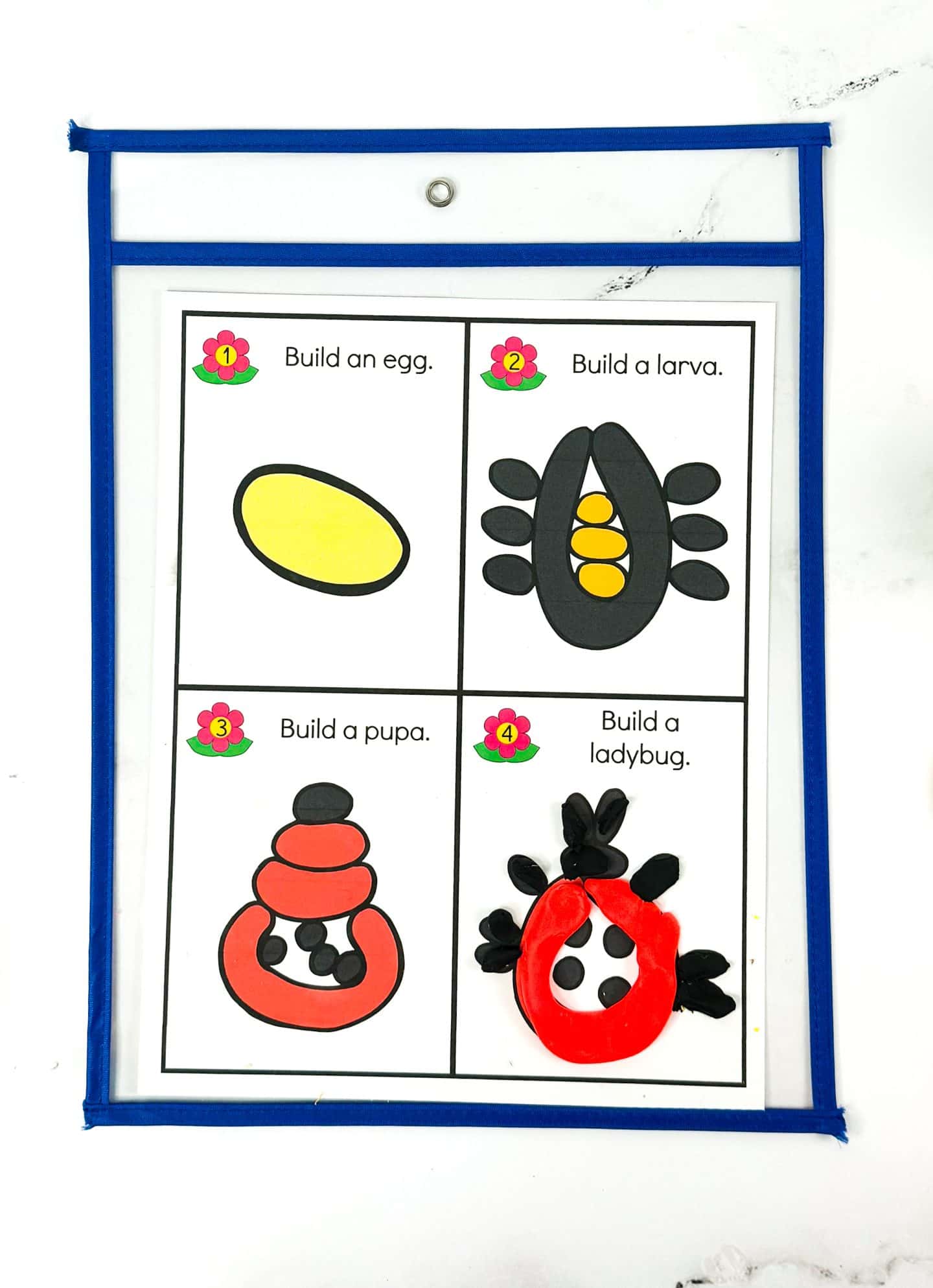
Add our ladybug life cycle coloring page to round out the activity.
Why Use Playdough Mats?
These mats are one of the easiest ways to turn science into something hands-on and memorable. Instead of just reading or coloring, kids are actually building each stage, egg, larva, pupa, adult, with their own hands.
- The tactile play keeps them focused longer (especially great for wiggly learners).
- Visuals on the mats make it easier to follow each step of the cycle.
- They work well for classrooms, homeschool, or even quiet-time play at home.
- Laminated or in a dry erase pocket, they hold up for repeat use all season.
It’s science, but it feels like play, and that’s what makes it stick.
Get Your Free Playdough Mats Here!
If you don’t see the form below, click here to get the free playdoh mats.
More Themed Playdough Activities to Explore
If your kids enjoyed these life cycle activities, keep the hands-on fun going with these creative sets:
- Dinosaur playdough mats from Homeschool Preschool – A playful way to introduce dino names and shapes while building fine motor skills.
- Weather playdough mats from Living Life and Learning – Let kids model clouds, rain, and sunshine as part of an easy early science activity.
- Christmas playdough mats from Darcy & Brian – Add a festive twist with Christmas shapes perfect for seasonal sensory play.
Last Updated on 23 October 2025 by Clare Brown

